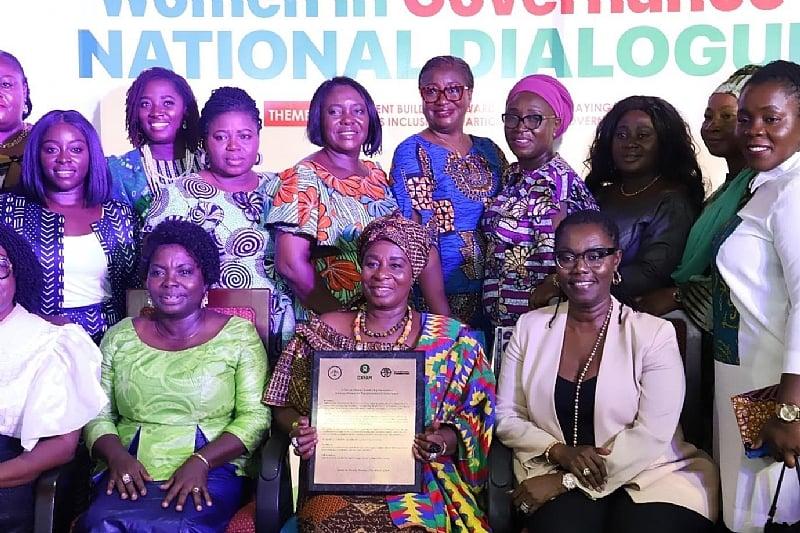The call for increased women’s participation and leadership across all spheres of public and political life in Ghana has reached a critical juncture, with the proposed Affirmative Action (Gender Equality) Bill being hailed as the last viable solution to address long-standing gender disparities.
At the Women in Governance National Dialogue held in Accra, the Minister for Communication and Digitalisation, Mrs Ursula Owusu-Ekuful, advocated for the passage of this transformative legislation.
She declared that “We have come to the end of the road, and this is the last alternative we have. ‘It is necessary that the bill be passed to support women because we have the right to be seated at the table.”
The Affirmative Action Bill aims to guarantee heightened participation, empowerment, and leadership opportunities for women across all public and political levels, a move seen as essential for Ghana’s holistic development.
In her address at the conference organized by the Eve Foundation in collaboration with OXFAM, Mrs. Owusu-Ekuful underscored the indispensable role of women in driving the nation’s progress.
“What else will it take for the nation to recognise that women are indispensable to its development? Socially, economically, and in every aspect, we are crucial to the progress of this country, and we deserve a meaningful seat at the table, not as mere tokens. We don’t seek permission from men to join; rather, it’s our inherent right to be there.”
Highlighting her efforts to promote gender inclusion within her ministerial portfolio, she mentioned that she pushed the boundaries of gender inclusion further when she took charge of the Ministry of Communications and Digitalisation.
“I inherited a Girls in ICT program, and upon reviewing it, I saw it as a great idea. I expanded it to create even more opportunities for young people to engage in the digital space.” She emphasized.
The conference, themed “Movement Building Towards an Equal Playing Field: Women Inclusion & Participation in Governance,” brought together various stakeholders, including women in politics, governance, public administration, and women’s rights organisations.


